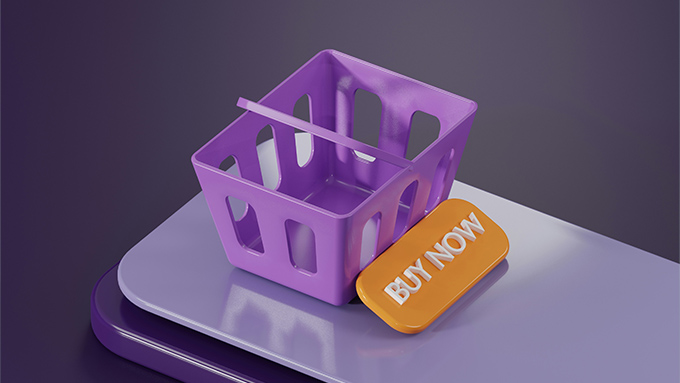Selective Distribution Systems
Introduction
Selective distribution systems refer to a type of distribution system in which suppliers commit to selling the contracted goods or services directly or indirectly to distributors selected based on specified criteria, while the distributors commit not to sell the said goods or services to unauthorized distributors.[1] These systems limit the number of authorized distributors and their resale activities, and therefore inherently contain provisions that restrict competition. Therefore, competitive concerns such as reduction of intra-brand competition, closure of the market to certain types of distributors and facilitation of cooperation that restricts competition between suppliers or distributors, may arise. On the other hand, under certain conditions, these restrictions in selective distribution systems can benefit from the group exemption introduced by the Block Exemption Communiqué on Vertical Agreements No. 2002/2 ("Communiqué No. 2002/2").
Characteristics of Selective Distribution Systems
Suppliers may prefer selective distribution systems to ensure that certain criteria regarding the qualifications of sales personnel or the location of the sales points are met in order to establish and maintain brand image. Indeed, it is presumed that the sale of products classified as luxury or products that are technologically complex or require technical knowledge (durable consumer goods, cosmetic products, jewelry, motor vehicles, etc.) in places that meet certain standards and by individuals with technical knowledge will have a positive impact on consumer demand.
Especially in the marketing of branded products such as jewelry and perfume, where pre-sales promotion services are essential, the physical characteristics of the sales points and the knowledge and capabilities of the sales personnel are crucial. Suppliers who do not desire such products to be sold in unsuitable locations or by individuals lacking sufficient knowledge and abilities generally consider selective distribution systems suitable as a distribution network. In order for such products to reach end consumers effectively, it may be obligatory for the product to be sold only by members of the selective distribution system. Therefore, the reason for suppliers to restrict their distribution network through this distribution model stems from the nature of the relevant goods or services.
Communiqué No. 2002/2 and Selective Distribution Systems
Selective distribution agreements can benefit from the group exemption provided by Communiqué No. 2002/2 when the supplier’s market share does not exceed 30% and certain conditions are met. Below are some general examples of specific competition law restrictions examined within the scope of group exemption.
Restrictions on the Region or Customers to Which System Member Buyers May Sell the Contracted Goods or Services
These are defined as the restrictions on the region or customers to which the buyer can sell the contracted goods or services. However, “the sales of selective distribution system members to unauthorized distributors are restricted” constitutes an exception to the rule that arises from the nature of selective distribution systems. In other words, members of selective distribution systems can impose restrictions on the region or customers to which the buyer can sell the contracted goods or services.
Restrictions on Active or Passive Sales by System Members Operating at the Retail Level to End Users
The supplier may request that the relevant product be sold only by selective distribution members; however, system member buyers may not be subjected to active or passive sales prohibition regarding sales to end users. Selective distribution system member buyers can make active or passive sales to end users in any region, including the internet channel, otherwise the agreement cannot benefit from the block exemption.
Restrictions on Purchases and Sales by System Member Buyers
As known, vertical agreements containing certain restrictions cannot benefit from the group exemption provided by the Communiqué No. 2002/2. One of these restrictions is defined in Article 4(d) of the Communiqué No. 2002/2 as “preventing the purchase and sale among system members in a selective distribution system.” Accordingly, undertakings that prefer selective distribution cannot impose an obligation on system member buyers to make purchases exclusively from them. In other words, system members are not obliged to procure products from the supplier; they cannot be prevented from obtaining products from other member undertakings.
Restriction on Sales Points
It is possible for the supplier to prevent the relocation of sales points of system member buyers or the establishment of new sales points. Indeed, as clearly seen from the characteristics of the system, the operation of the system is directly related to the physical characteristics of the sales point. Therefore, the supplier is allowed to have a say in the locations of physical sales points and the establishment of new points.[2]
Especially in selective distribution systems, the supplier may impose an obligation on distributors to have at least one physical sales point. However, the purpose of this condition should not aim to push players which only have online sales (pure players) out of the market or restrict their sales. The conditions that can be imposed on internet sales should not directly or indirectly hinder the distributor’s internet sales. As such, the reasons for the conditions imposed on internet sales should be objectively concrete, reasonable, and acceptable in terms of enhancing the nature and quality of distribution, brand image, and/or potential effectiveness. In this context, the supplier may require the buyer to sell through “sales platforms/marketplaces” that meet certain standards and conditions.
Similarly, the supplier may establish certain conditions regarding the use of the internet as a sales channel. For example, the supplier may impose quality conditions for the internet site where its products are offered for sale or may require the provision of certain services to consumers who shop online. However, the purpose of these restrictions should not be to prevent the distributor from selling online and competing on prices.
Non-Compete Obligations
A supplier undertaking can require selected buyers to sell only its products and not sell any competing products. However, it cannot allow some of the competitors’ products to be sold in this system while preventing others from using this system. In other words, the non-compete obligation in a selective distribution system should either be imposed on all competing products or none of them. The Vertical Guidelines state that this condition aims to prevent certain suppliers from engaging in horizontal cooperation that restricts competition that excludes certain brands through selective distribution agreements.[3]
Conclusion
Selective distribution systems inherently contain various restrictions in terms of competition law. In these systems, often used for luxury consumer goods, suppliers can impose various restrictions on buyers in order to maintain brand image based on the qualifications of sales personnel and points. In cases where the supplier’s market share does not exceed 30%, the relevant agreements can benefit from the group exemption provided by the Communiqué No. 2002/2 under certain conditions.
- Article 3 of Block Exemption Communiqué on Vertical Agreements No. 2002/2.
- Launching of a new website by the system member buyer is not considered as establishing a new physical sales point.
- Vertical Guidelines, para 178.
All rights of this article are reserved. This article may not be used, reproduced, copied, published, distributed, or otherwise disseminated without quotation or Erdem & Erdem Law Firm's written consent. Any content created without citing the resource or Erdem & Erdem Law Firm’s written consent is regularly tracked, and legal action will be taken in case of violation.
Other Contents

The U.S. District Court for the District of Columbia (“Court”) issued its memorandum opinion (Memorandum Opinion) on November 18, 2025, in the antitrust case (“Case”) between the Federal Trade Commission (“FTC”) and Meta Platforms Inc. (“Meta”). The FTC alleges that Meta monopolized the market…

No-poach agreements, which have become one of the most prominent concepts in global competition law in recent years, are defined in the Glossary of Competition Terms as “agreements, whether direct or indirect, whereby one undertaking agrees not to make job offers to, or hire, the employees of another...

The Competition Board (“Board”) has broad powers to request information from undertakings. The legal basis for this authority is provided by Article 14 of Law No. 4054 on the Protection of Competition (“Law No. 4054”). Under this provision, the Board may request any information it deems necessary from public...

Competition authorities around the world have increasingly focused on labor market infringements under competition law, issuing new regulations and guidance recently. Notable examples include the U.S. Department of Justice and Federal Trade Commission’s joint guidance, the Japanese Fair Trade Commission’s...

Chapter 8 of the General Data Protection Regulation (“GDPR”) sets out the legal remedies available to data subjects in the event of a breach of their rights under the GDPR. Accordingly, each data subject has a right to lodge a complaint with the supervisory authority of the Member State in which they reside, work...

Mergers and acquisitions play a critical role in shaping the competitive structure of the market. Although such transactions can lead to positive outcomes such as the provision of products and services at lower prices, the development of new products and technologies, and improvements in quality, they may also...

Technology and the opportunities it brings undoubtedly play a key role in strengthening the competitiveness of market players. In this context, pricing algorithms that enable undertakings to monitor publicly available prices and optimize their own pricing strategies have become widely used, especially by digital platforms...

The Regulation on Fines to Apply in Cases of Agreements, Concerted Practices and Decisions Restricting Competition, and Abuse of Dominant Position (“Former Regulation on Fines”), which entered into force upon its publication in the Official Gazette dated February 15, 2009 and numbered 27142, was...

In the past years, the Turkish Competition Board (“Board”) has closely monitored the activities of undertakings operating in the retail sector. As a result of the Board’s record of administrative fines, horizontal type of violations in the retail sector have been highly publicized. Vertical violations such as resale price...

In recent years, numerous automobile manufacturers have announced their goals to reduce carbon emissions, with many brands setting net-zero carbon targets spanning from production processes to the lifecycle of their vehicles. While ongoing debates persist regarding the significantly higher carbon footprint of...

Under Article 15 of Law No. 4054 on the Protection of Competition (“Law No. 4054”), the Competition Board (“Board”) may conduct on-site inspections at the undertakings’ premises when it deems necessary in fulfilling the duties assigned to it. During the on-site inspection, the Board is authorized to examine all...

Agreements and information exchanges between undertakings in labor markets have recently been examined in various preliminary investigations and investigations initiated by the Turkish Competition Authority (“Authority”). Following the investigations in which some undertakings were subject to...

The Turkish Competition Board’s (Board) decision regarding the acquisition of the international road transport business line of Ekol Lojistik AŞ (Ekol) by DFDS A/S (DFDS) has been one of the most prominent transactions on the competition law agenda recently...

The Competition Board (“Board”) has broad powers to request information from undertakings. The Board’s authority to request information arises from Article 14 of the Law No. 4054 on the Protection of Competition (“Law No. 4054”). Under the relevant provision, the Board may request any information it deems...

Doğuş Otomotiv Servis ve Ticaret A.Ş. (Doğuş) applied to the Turkish Competition Authority for an exemption for the practice of recommending basic wages to be applied to sales and after-sales service employees of its authorized dealers and distributors...

Access to Instagram was blocked ex officio by the Information and Communication Technologies Authority (ICTA) as of 2.08.2024. Under Article 8 of Law No. 5651 on the Regulation of Publications on the Internet and Combating Crimes Committed Through These Publications, ICTA can issue an ex officio access...

It is well known that agreements between employer undertakings with regards to their employees, such as wage-fixing and non-poaching agreements, along with competitively sensitive information exchanges have been under the scrutiny of competition authorities all over the world, including the Turkish Competition...

Automotive is one of the sectors in which the world’s most significant investments are made. The Competition Board (“Board”) has been closely interested in the automotive sector over the years and has conducted various examinations and studies in this field...

Competition authorities around the world continue unabated to investigate competition concerns arising from data collection and processing activities of digital platforms and impose severe sanctions as a result...





The startup ecosystem in Turkey has experienced notable growth in recent years. In the last quarter of 2023, 81 startups secured a combined investment of around 60 million dollars. While the number of investments remained consistent when comparing the third quarter periods of 2022-2023, there was a decrease...

Hub and Spoke cartel is a type of violation that is not clearly defined and regulated under Law No. 4054 on the Protection of Competition (“Law No. 4054”). Decisional practices of foreign competition authorities, particularly the UK Competition and Markets Authority’s decisions (“CMA”), are instructive concerning...

The Competition Board ("Board") made an addition to its line of decisions on resale price maintenance with its decision on Sunny Elektronik Sanayi ve Ticaret A.Ş. ("Sunny") . In its decision, the Board thoroughly examined the allegations regarding Sunny's involvement in maintaining resale prices and restricting...

It is observed that the Competition Authority (“Authority”) has recently scrutinized various industries such as fast-moving consumer goods, labor market, pharmaceuticals, and cement. When the reasoned decisions of the Competition Board (“Board”) published in October are examined, it can be seen that the...

Jules Verne says, “Everything on earth has a limited lifespan, nothing that will exist forever can be created by human hands”. Perhaps change is the only constant concept in all our lives. Despite two major world wars and countless periods of crisis, humanity has been undergoing a great change and...

At the meeting of the Fédération Internationale de Football Association (“FIFA”) held on 16 December 2022, the FIFA Council approved the FIFA Football Agents Regulations (“FFAR”). In the FFAR, various amendments have been made, such as the introduction of a maximum service fee limit that football agents are...

Resale Price Maintenance (RPM) is still considered a hardcore restriction under the recently revised Vertical Block Exemption Regulation (VBER), which means that it cannot benefit from a statutory exemption under Article 101(1) TFEU, unlike certain other types of vertical agreements. However, it has been debated...

In competition law, it is important to accurately determine the concept of undertaking, especially in terms of mergers and acquisitions. Therefore, the concept of economic entity aims to reveal the economic units covered by the undertakings. The relationship between the concept of economic entity and family ties comes...

In these days when the Competition Board (“Board”) frequently imposes administrative fines for preventing on-site inspections and both the Competition Authority (“Authority”) and undertakings take legal and technical measures regarding on-site inspections, a striking development has occurred. In its decision...

Online advertising has become an important source for businesses for promoting products and services and meeting consumers, as a result of the rapid development of information technologies and increase in the use of internet. Delivering targeted messages to consumers at the right time through the digital...

Fast-moving consumer goods is undoubtedly one of the sectors that the Competition Authority has been working most intensively since the COVID 19 pandemic. Among the most important developments of this period was the Sector Inquiry initiated on Fast Moving Consumer Goods (“FMCG”) Retailing...

In the decision of the Constitutional Court ("Constitutional Court" or "Court") dated 09.11.2022, numbered 2020/67 E. 2022/139 K. (the "Decision"), the annulment of certain articles of the Law Amending the Law on the Protection of Competition No. 4054 ("Law No. 7246") was requested...

In Turkish competition law, certain types of mergers and acquisitions are subject to Turkish Competition Board’s (“Board”) approval in order to gain legal validity. Pursuant to Article 7 of the Law No. 4054 on the Protection of Competition (“Law No. 4054”), the Board is competent to define mergers and acquisitions...

Recently, the Competition Board (the Board) had imposed administrative fines on banks and financial institutions for failing to respond to the request for information within the scope of a preliminary investigation.[i] The request for information that lays the groundwork for the administrative fine imposed by...

Amazon, a world-famous company, is an e-commerce company that operates the world’s largest online shopping platform. In the backstage, Amazon is a data-driven company whose retail decisions are mostly driven by automated systems, fueled by the relevant market data. That being said, Amazon has a dual...

The right to make on-site inspections is one of the Competition Board’s (“Board”) most important tools for revealing whether Law No. 4054 on the Protection of Competition (“Law No. 4054”) has been violated. The effective use of this authority is quite important in terms of obtaining fruitful results from...

“Harese” is an interesting Arabic word. There is a thorn that camels love very much in the desert. The camel eats the thorn with great greed. So much so that, its mouth bleeds as it eats, but it doesn't stop eating. The taste of the thorn is mixed with the salty taste of its own blood. This mixed taste drives the camel...

Turkey’s leading pay television service provider, Krea İçerik Hizmetleri ve Prodüksiyon A.Ş. (“Digiturk”), is frequently the subject of complaints made to the Competition Authority (“Authority”). In fact, the Competition Board (“Board”) issues a new decision about Digiturk almost every year. In these decisions...

The French Competition Authority (Autorité de la Concurrence), within the scope of the competition law proceeding initiated upon the complaint of Criteo SA (“Criteo”), accepted the commitments proposed by Meta Platforms Inc., Meta Platforms Ireland Ltd., and Facebook France...

While the scope of Competition Board’s (“Board”) power to conduct on-site inspections has increased with the introduction of Guidelines on Examination of Digital Data during On-site Inspections (“Guidelines”), nowadays the amount of monetary fines imposed on undertakings continue to...

The hub and spoke cartel, which is a relatively new type of violation in terms of Turkish competition law, is defined as the indirect exchange of information between two independent undertakings which are horizontal competitors on the supplier or retailer level, through another undertaking...

The settlement mechanism has only recently been introduced to Turkish competition law practice. It entered into force with the amendment made to the Law on the Protection of Competition (“Law”) numbered 4054 on 16.06.2020, and has been in effect for less than two years. In this relatively...

Due to their increasing share in the economy and rapid growth rate, e-marketplace platforms have come under the increasing scrutiny of the Turkish Competition Authority (“Authority”) as well as many competition authorities around the world...

Pursuant to the Amendment Communiqué Concerning the Mergers and Acquisitions Requiring the Competition Board’s Approval (“Amending Communiqué”) published in the Official Gazette dated March 4th, 2022 and numbered 31768, certain amendments have been introduced...

The Competition Board (“Board”) has recently published a reasoned decision in which it evaluated BSH Ev Aletleri Sanayi ve Ticaret A.Ş.’s (“BSH”) request for negative clearance or exemption with regard to its practice of prohibiting authorized dealers from making sales through online marketplaces...

Shahmaran, a Mesopotamian myth, is believed to take place in Tarsus. According to the myth, the shah of snakes is the immortal and omniscient "Shahmaran." Shahmaran is described as a beautiful woman living in her cave with her snakes...


During the COVID-19 pandemic, competitive concerns about the pricing behavior of chain markets, manufacturers, and wholesalers engaged in the retail trade of food and cleaning supplies led to an investigation by...

When the past decisions and the recent decisions of the Competition Board (“Board”) are examined, a significant increase can be observed in the number of decisions where the Board found hindrance or obstruction of on-site inspections. This situation shows that...

The European Commission began investigating the collusive behavior of Credit Suisse, UBS, Barclays, RBS, and HSBC in the Foreign Exchange (forex) spot trading market in 2019. With the recent press release dated 02.12.2021, the Commission announced that the case is now closed...


Digitalization, in particular, necessitates the rewriting of competition law rules. Competition law is at the center all questions regarding e-commerce and digital platforms. The aforementioned platforms, which have become prominent due to innovations in...

















































